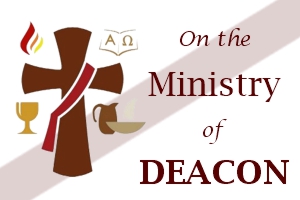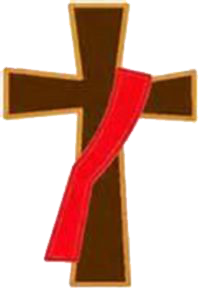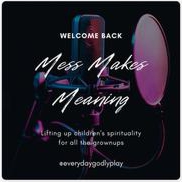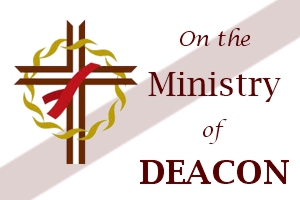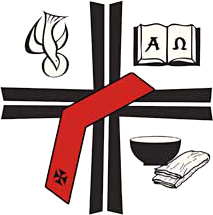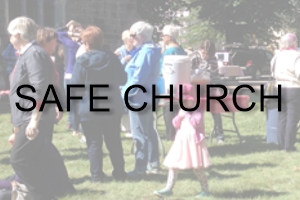An advent reflection
by Canon Jon Lownds
Death, judgement, heaven and hell
Fifty years ago, when I (Jon+) began in ordained ministry, the season of Advent, the four Sundays before Christmas, focussed on four “last things:" death, judgement, heaven and hell. With the Advent this year being as short as possible, and largely ignored even by devout Christians, (and being older!), I have been recalling Advents in the past and am reminded of this seemingly long-lost focus on last things and how they were indeed good news for Christians and helpful in preparing the way of the Lord.
Death, one thing it seems no one can ignore, and one that certainly gets a lot of attention in our society today with ongoing controversy over abortion access, Medical Assistance in Dying, and the increasing demands on our medical professionals and health care system to prolong life and avoid death. So what is it about death that could be called “Good News?”
Jesus, before raising his friend Lazarus from the dead, makes a remarkable statement to Martha, the man’s sister: “Jesus said to her, ‘I am the resurrection and the life. Those who believe in me, even though they die, will live, and everyone who lives and believes in me will never die. Do you believe this?’” (John 11:25-26) Good question: “never die” - do you believe this?
It becomes more than an academic issue when your wife dies at age 60 unexpectedly during surgery. I am faced with the question! I have been preaching the reality of the Resurrection, do I really believe death is transition, not termination - that death as death is a lie? That is Jesus who came for her, not death? Really?
In the Book of Common Prayer, the ‘Proper Preface’ for Easter in the Thanksgiving and Consecration Prayer says, “BUT chiefly are we bound to praise thee for the glorious Resurrection of thy Son Jesus Christ our Lord: for he is the very Paschal Lamb, which was offered for us, and hath taken away the sin of the world; who by his death hath destroyed death, and by his rising to life again hath restored to us everlasting life.” (BCP Page 80) Do you believe this?
The death of death as death? Death destroyed? Death not faced by those who believe in Jesus? I am reminded of a story told by Dietrich Bonhoffer in one of his letters about a Gestapo Officer torturing a Lutheran Bishop who in frustration gave up because the man was not afraid of death because he had already given himself to Jesus. To have made that decision to entrust yourself to Jesus, to rely upon, depend on, have confidence in Jesus is the gift of faith (Romans 12:3).
Today the First Sunday in Advent is the Sunday of Hope - the sure and certain hope we have in eternal life through our Lord Jesus. So the question remains, Do you believe this? And the answer makes a difference in that we look at ‘death’ as transition, or as the Salvation Army like to call it, “Promotion to Glory.”
Judgement is also interesting from this point of view. Jesus says that those who believe in Him do not face judgement but have passed from death to life. So, while all face Him after what we call death, resurrection is not optional, but judgement is and is based on our acceptance of His gift of Life, or more correctly, of Himself. (See John 3:17-18, John 5:24, 28-29.) Methodist Evangelist John Hobbs was fond of saying, “Peace is not the absence of conflict, peace is the presence of Jesus.” Peace then is the fruit of moving from death to life through entrusting ourselves to Jesus.
Heaven happens here. In Mark 1:14 we are told Jesus came to Galilee proclaiming the Good News, saying the Kingdom of God has come near. The King has come and where the King is, there is the Kingdom. So Heaven is a state of trusting in, relying on, depending on Jesus rather than ourselves or anyone or anything in our world.
I have set before you life and death, blessings and curses. Choose life!
I came to Fredericton in 1967, Centennial year, as a political affairs reporter for Radio Atlantic, CFNB. Eventually I became a member of the legislature press gallery. This was during the days of Premier Louis Robichaud (Premier 1960 - 1970) and the Equal Opportunity era. Sitting alone in the press gallery one day I heard (in my inner ear), “There is no salvation here.” In these days of political unrest, particularly south of the border, it is helpful to remember that the Kingdom of God/Heaven has not changed - Jesus is Lord, King of Kings and Lord of Lords, or as I like to say, ‘large and in charge’. So no matter what happens, I can return to Joy if I will shift focus to Jesus. (Hebrews 12:1-2). Again a favorite saying of John Hobbs, “living in the Kingdom on the way to the Kingdom.”
Hell is a different issue. Love, the word associated with the last Sunday of Advent, carries with it the awful consequence of what is perhaps the second most important gift given humanity by the creator (after the gift of Jesus of course) - consciousness, awareness, which gives rise to self-consciousness, self-awareness, with the resultant danger of self-centeredness and self-reliance - also known as ‘sin.’
The Book of Deuteronomy records Moses telling the people “I have set before you life and death, blessings and curses. Choose life” (30:19) This is the fruit of love, the gift of choice. It is a gift and choice we get to make over and over again daily - to rely on, depend on, entrust ourselves to Jesus, to follow Jesus, or not. His way or the hell way, your choice. That we are given the freedom to choose is the cost and consequence of Love. This is where Death, Judgement, Heaven and Hell come to a climax in the life of each and every one of us. “I have set before you life and death, blessings and curses. Choose life!” The total extent of human freedom is this choice - His way (“Follow Me”) or your way (“I can do it myself”). Pray that no one ultimately hears “OK, have it your way.”
Advent, the call to prepare the way of the Lord, to make a highway for our God, to prepare in your heart a home where Jesus is welcome, listened to, relied upon and can bring us home. The challenge of Advent for me is to keep my focus on Jesus. “O come, O come Emmanuel ...” Amen.
20/12/23











